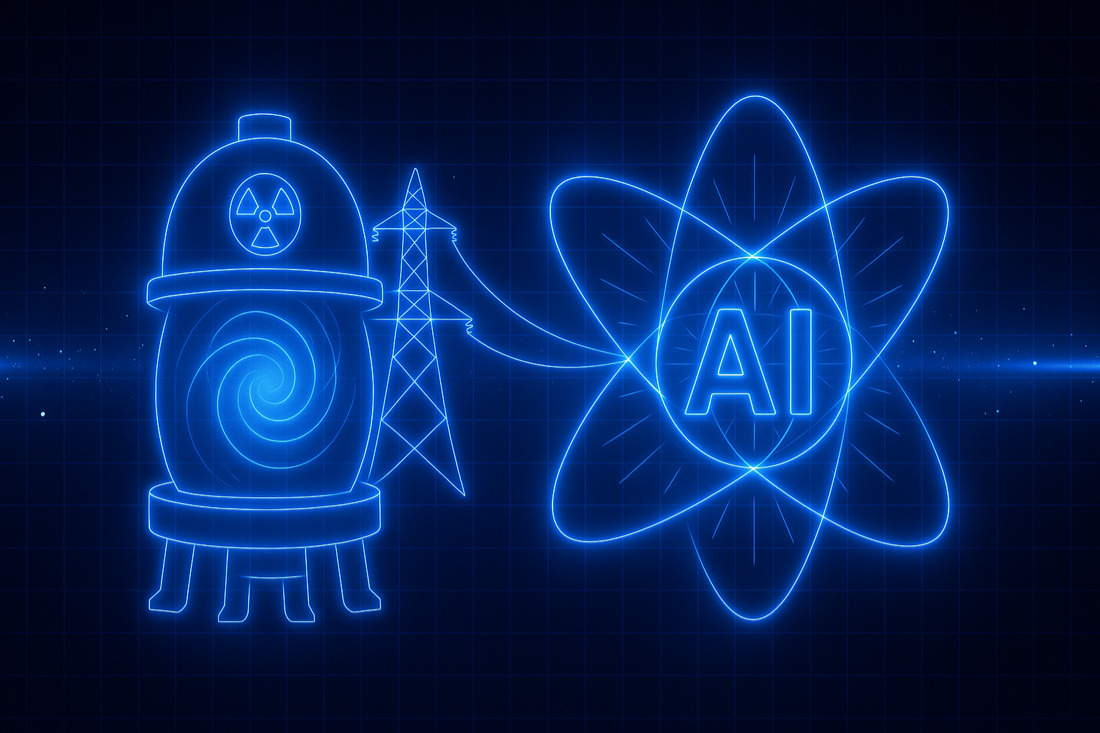
Fusion energy is not only cheap, clean and limitless, it is also the "engine" that will drive the enormous increases in artificial intelligence (AI) that will be the ultimate super-weapon of this century. AI requires electricity -- enormous amounts of it -- that only fusion energy can generate cleanly, cheaply and in unlimited amounts.
If there were a formula for who will dominate the 21st century, it would be: Fusion Energy + AI = World Supremacy.
Our nation, however, is now faced with a new and dangerous 21st century threat.
China has been steamrolling ahead developing cheap, clean and limitless fusion energy to fuel the great new frontier of AI. Meanwhile, America appears stuck in the technology of soon-to-be-outdated fission energy.
AI, as President Donald J. Trump has stated, is what will determine which nation is the superpower of the 21st century. The Trump administration cannot allow China to leave America in the dust for want of energy to power America's AI.
In this century, there will be two types of nations: the ones that conquered fusion energy and those that wish they had.
As China's proficiency in fusion energy grows -- the Chinese have already exported a fusion device to Thailand -- the United States dangerously still appears to prefer the soon-to-be- outdated fission energy, associated with the catastrophes of Chernobyl, Three Mile Island and the fission reactors in Ukraine, if a Russian missile should hit one.
Fission energy, as for an atom bomb, is created when a uranium atom is split:
"During nuclear fission, a neutron collides with a uranium atom and splits it, releasing a large amount of energy in the form of heat and radiation."
Fusion energy is made by forcing two electrons -- usually from deuterium and tritium -- to collide and fuse together, for example, at extremely high temperatures in containers called tokamaks. The collision releases massive amounts of energy, with no waste. The International Atomic Energy Agency notes:
"In theory, with just a few grams of these reactants, it is possible to produce a terajoule of energy, which is approximately the energy one person in a developed country needs over sixty years...
"Fusion fuel is plentiful and easily accessible: deuterium can be extracted inexpensively from seawater, and tritium can potentially be produced from the reaction of fusion generated neutrons with naturally abundant lithium. These fuel supplies would last for millions of years.
"Future fusion reactors are also intrinsically safe and are not expected to produce high activity or long-lived nuclear waste.... there is no risk of a runaway reaction and meltdown... . "
Fortunately, America is surrounded by two large oceans of seawater, and has supplies of lithium "all over the country." A lithium mine already operates in Nevada.
The problem in the US, so far, is that members of the current administration seems to prefer only fission energy. They know it, feel comfortable with it, and it is readily available. They also, understandably but shortsightedly, like projects that show an immediate return on investment. It is most urgent, however, if the US is to compete successfully with China, to think long-term.
China has been investing at least $1.5 billion each year in developing fusion energy for commercial use -- its current funding of fusion energy is, along with much else there, apparently a state secret.
Trump urgently needs to assemble a "Manhattan Project for Fusion Energy," similar to the Manhattan Project that President Franklin D. Roosevelt established during WWII for the US to have an atomic bomb. The new Manhattan Project could be funded by the next Reconciliation Bill and by some of the investments for energy development that Trump has so brilliantly brought in from abroad.
Our nation once spent billions to ensure our survival during and after World War II. We can do no less against a well-armed, well financed, implacable enemy of America that is now spending the necessary funds to be the one nation that will own fusion energy. China.
To lose the AI race to China, by allowing it dominance in fusion energy for generating the massive amounts of electricity needed for AI, would be a failure the US cannot afford.
Lawrence Kadish serves on the Board of Governors of Gatestone Institute.


